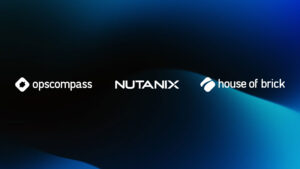House of Brick Principal Architects
Every once in a while I am asked about my shortlist of reference and must-read materials. You know — materials that, without which I could not have understood new or unfamiliar topics, and the resources that I routinely pull up and reference while I do my day-to-day work.
Below are some of the most important references and training items that I can think of, as well as the sites I constantly go back to if I have questions or need more details on a topic.
SQLskills Immersion Events
Paul Randal and Kimberly Tripp, the duo behind SQLskills.com, provide the most in-depth training on SQL Server internals, performance, high availability, and disaster recovery in the industry through their Immersion classes. I have experienced IE1, and am getting ready to sit IE2 in just a few weeks. I cannot speak highly enough about these courses and how invaluable they are. In-depth knowledge of how SQL Server works makes you better at using the product, and these classes are the best out there for this sort of training.
SQL Server Books Online
SQL Server Books Online is my first point of reference for anything SQL Server. It is so packed full of useful reference materials that it is first in my browser bookmark list.
SQL Server 2012 Books Online – http://msdn.microsoft.com/en-us/library/ms130214.aspx
SQL Server 2008 Books Online – http://technet.microsoft.com/en-us/sqlserver/cc514212.aspx
Microsoft Developer Network
Whenever I need to search for keywords from whatever today’s question of the day is, more often than not I come back to MSDN and the community forums. The amount of knowledge contained in these forums is staggering and I almost always find a good answer to my question by performing a quick search.
http://social.msdn.microsoft.com/Forums
SQL Server 2008 Internals
This book is my number one resource for in-depth SQL Server internals. To truly understand performance, you have to internalize the inner workings of the SQL Server engine. This book is not a quick reference guide, but rather a guide for absolute mastery of the engine. Read the book twice, and you will be coming back to it as a point of reference.
You can find SQL Server 2008 Internals at Amazon.
SQL Server 2008 Query Performance Tuning Distilled
Whenever I run across a system that has poorly constructed queries that are causing applications to suffer, I reach for this book before I hit the search engines.
You can find SQL Server 2008 Query Performance Tuning Distilled at Amazon.
System Introspection Queries
Glenn Berry constantly updates his SQL Server Diagnostic Queries. I reference these almost on a daily basis and freely point customers at his blog. These queries provide some of the best insight into a system stack that I have found, and provide a great first-look into a new system.
http://sqlserverperformance.wordpress.com/
SQL Server Maintenance Solution
Ola Hallengren provides a database maintenance script that is leagues better than the built-in database maintenance plans. These scripts are on any SQL Server instance that I have control over. They are just simply that great.
Wait Statistics Reference
The Joes 2 Pros book called SQL Wait Stats by Pinal Dave and Rick Morelan is a fantastic reference for checking on wait statistics. As part of our performance triage, wait stats play a huge role in the investigation process. This book helps me quickly reference a wait stat that is either obscure, or previously unknown to me.
You can find SQL Wait Stats at Amazon.
SQL Community and Twitter
The largest single item that keeps me excited about SQL Server is the community around the product. SQL Server Users Groups, SQL Saturdays, PASS Summit, and my recent move into the Twittersphere never fail to show me just how close-knit this community truly is. To get almost immediate assistance to an issue, simply tag a message with the #sqlhelp hashtag and some of the greatest SQL Server minds in the world will assist you.
To all those taking the time out of your busy schedules to answer questions on Twitter: I thank you.
SQLIO
The largest point of contention I find in system performance is shared storage over-commitment or misconfigurations. I love to use the freely available SQLIO from Microsoft to perform storage benchmarks and baselines. It simulates disk activity with a number of various parameters.
SQLIO is available at Microsoft.com.
SQLIO Analyzer
House of Brick has a tool that saves me hours every time I need to analyze the output from a SQLIO performance test. It takes the output file as configured by a script and extracts the data you need. It then performs a simple analysis that presents a storage performance curve showing the performance of the storage under varying degrees of load. Contact House of Brick for more information.






